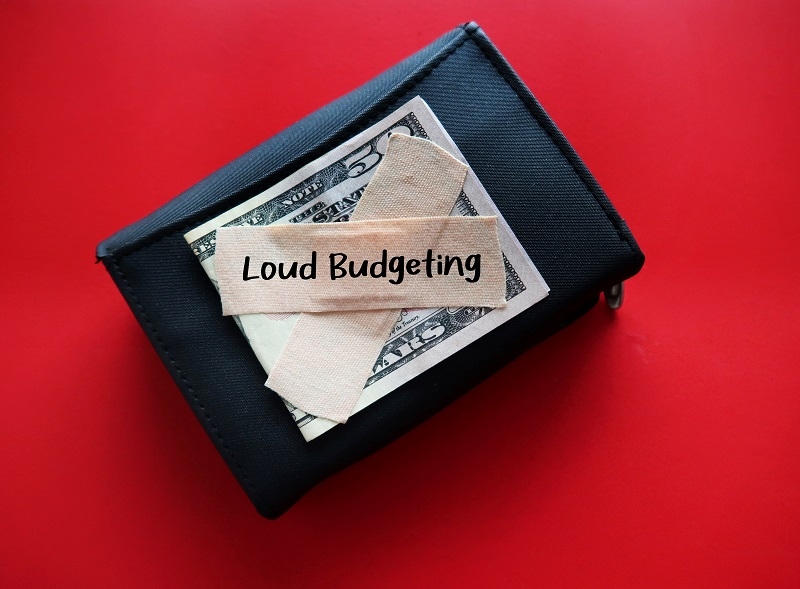
Most people would rather discuss awkward first dates than line-item spending. Bills pile up like junk mail, and the very word “budget” triggers images of dry spreadsheets or stern lectures from finance gurus. Yet credit-card balances keep climbing, and streaming subscriptions multiply like rabbits. Household money woes are no longer abstract—they’re dinner-table stressors.
Into that pressure cooker marches a bright, unapologetic trend: Loud budgeting. Instead of quietly fretting over numbers, everyday folks blast their financial play-by-play across group chats, social feeds, even office whiteboards. It feels counter-intuitive at first, but grab a coffee and stay curious because the logic packs a punch.
A single nineteen-second clip can rack up millions of views before lunch. One day a creator films a wallet confession: last month’s dining-out total. No fancy camera, just brutal honesty and a tiny jazz beat. Comments pour in—high-five emojis, recipe tips, a few gentle roasts. That feedback loop converts personal shame into communal problem-solving. Algorithms latch on, and soon the hashtag peaks. Financial institutions publish think-pieces, and morning shows invite influencers to demo envelope-stuffing on live TV. Attention cycles are short, yet this one sticks because it does something rare: transforms private pain into a social game with visible points, cheering squads, and weekly scoreboards.
Strip away the glitter and you reach a single sentence: What is loud budgeting? It is the practice of declaring spending and saving targets in public spaces, then reporting progress out loud on a regular schedule. “Public” can be as intimate as five friends in a group chat or as massive as three hundred thousand followers on a short-form video platform. The medium matters less than the volume. You decide the level of detail—percentages, dollar figures, or color-coded emojis—so long as updates remain frequent and real. Transparency acts as both spotlight and shield, illuminating hidden habits while guarding future goals from slow drift.
Humans dread losing face. Announce a vow to skip ride-share splurges, and the thought of backtracking later sparks discomfort. Behavioral scientists call that commitment bias. Fitness apps tap it with step counts. Loud money trackers harness the same effect on dollars. Another lever is social belonging. Sharing milestones invites advice, gifs, and “you got this” DMs. Each heart icon fires a dopamine burst in the brain. Over time these micro-rewards wire discipline into muscle memory. Doubt this? Picture missing a self-imposed grocery cap. You almost tap “order delivery,” but then your mind flashes to tomorrow’s update and the imaginary chorus of disappointed eyeballs. Suddenly you raid the freezer for leftovers instead.
Ready to crank up the volume? Begin with two sheets of paper or one phone note. On the first jot net income after tax. No guessing; open the banking app. On the second divide expenses into three mega buckets—needs, wants, future. Keep buckets broad so updates stay quick and viewers grasp the gist without scrolling micro-lines. Assign rough dollar ceilings to each. For instance, rent and groceries land in “needs,” take-away lattes in “wants,” and 401(k) contributions in “future.” Next choose a broadcast platform. Could be Instagram stories, a Discord server, or a homemade chalkboard hung in the hallway. Finally set update cadence—maybe every Sunday at four. Consistency outranks perfect math.
Add a visceral “why” to each target. Cutting thirty bucks of weekly takeout morphs from vague denial into a vivid “ticket to mom’s birthday trip.” Each update reminds followers (and you) of that plane seat, boosting emotional gravity. Before long the budget becomes a living saga.

Digital trackers. Spreadsheets bore many users. Try colorful apps that tag purchases with cheerful icons.
Accountability partners. Pair up with a friend on a similar journey. Alternate update days to keep momentum rolling.
Micro challenges. Launch flash rounds like “no-spend Wednesday” or “free fun Saturday.” Low stakes but high morale.
Related Resource: Top Budgeting Apps to Help You Master Money Management
A Dallas teacher began posting grocery hauls eight months ago. Viewers voted on which produce bundle looked cheapest per serving. Over half a year she knocked out four grand of high-interest debt. She credits followers who slid coupon codes into her DMs. Meanwhile a Milwaukee barber bragged about skipping Friday bar nights yet slipped twice. He posted the bar tab anyway. Nobody canceled him. Honesty punched up trust, and the next sober Friday drew bigger crowds. Loud budgets thrive on imperfection owned in daylight. Each misstep becomes fresh content and a cautionary tale the audience can mine for their own tweaks.
Oversharing invites trolls. Block early, block often. Comparison creep lurks too. Somebody’s highlight reel flaunts faster progress, tempting you to chase trends unrelated to your needs. Stay tethered to your initial plan. Privacy lines deserve respect—share percentages instead of raw salary if that feels safer. And never reveal account numbers or full addresses. Loud does not equal reckless. Lastly, remember platform burnout. Daily posting can morph into second-job fatigue. If energy dips, scale back frequency rather than quitting cold turkey.
Money chatter once lived behind banker desks and closed family doors. Now college students debate Roth IRAs on bus rides, new parents share 529 hacks in parenting forums, and retirees livestream debt-free screams. This openness chips away at harmful taboos, sparks fairer workplace pay talks, and surfaces predatory pitfalls early. When thousands swap tips in real time, collective knowledge outruns most formal courses. Societal norms evolve, shaping policy proposals and employer benefit packages. A single viral chart can pressure banks to drop overdraft fees, proving that grassroots loudness wields tangible economic power.
Week One: Map income and carve three buckets. Identify one glaring leak—maybe premium coffee runs. Record a short intro clip explaining that focus.
Week Two: Track every swipe using a note app or colored index cards. Share a mid-week meme when temptation hits. Humor lowers defensiveness while cementing accountability.
Week Three: Post a recap graphic. Highlight wins and misses. Adjust the next week’s caps. Invite followers to share their own mini goals. Momentum grows when spectators become fellow players.
Sprinkle tiny rewards along the path. Celebrate milestones with a thrift-store find, a home-cooked feast, or a sunset picnic. Cheap dopamine beats pricey impulse buys every time.
Further Reading: Retirement Myths in 2025 That Could Wreck Your Finances
Old-school budgeting was a solitary trek up a fog-covered hill. The loud version hands each climber a megaphone, a flashlight, and a cheering crowd. Public tracking turns abstract resolutions into social events brimming with jokes, gifs, and genuine empathy. Yes, slip-ups happen—a surprise birthday dinner, a late-night online cart. Yet every transparent post triggers quick self-correction, something silence seldom provides.
In a world of seductive ads and one-click checkouts, wielding communal truth may be the strongest of all money saving methods. It re-frames thrift as a shared adventure rather than a private punishment. Curious onlookers still asking loud budgeting meaning? Picture self-care with a microphone and an audience rooting for your next milestone. Still wondering “whats loud budgeting”? It is turning personal finance into a team sport where high-fives replace hush-hush shame, proving that clear voices can stretch paychecks further than any fancy calculator.
This content was created by AI